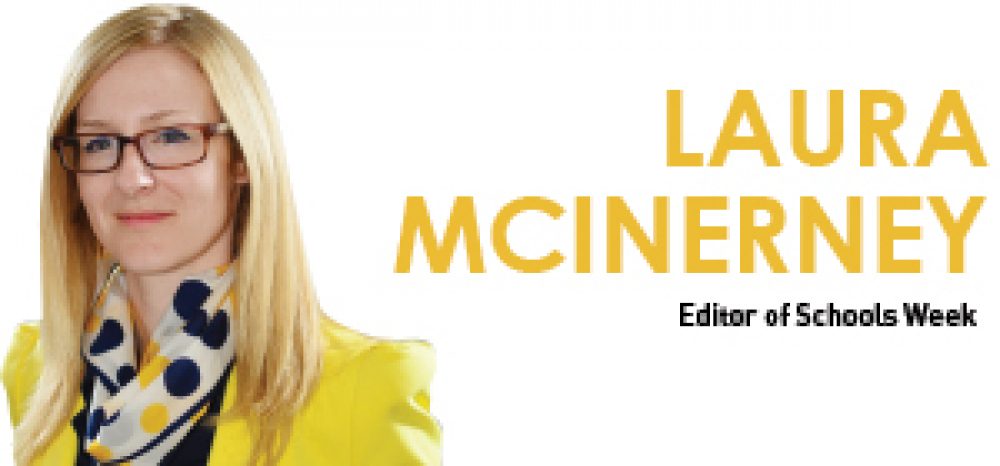Conversations about money in education are difficult, tinged as they often are with a sense that real teachers are “here for the children” rather than their wallets.
But such conversations need to happen. People working in schools aren’t saints. They are professionals swapping time for cash. It’s perfectly possible to care deeply and want to get paid reasonably for doing a job well.
It was therefore a mild surprise when, last summer, I found myself sitting opposite a PR person employed by a large academy trust as they lengthily explained how the organisation would never ever comment on stories about CEO’s pay. Apparently, they took a dim view of our writing a pay league table, as we did last year, and in this edition. It was “below us” and “tabloid”, so they said, and instead we should be showing education in positive light: one that radiates community spirit and altruism. Which is all very well, until you remember that schools aren’t there to make adults feel good about themselves for their charitable endeavours but exist to make sure children actually learn things. And that for as long as schools have finite amounts of cash, which will diminish in real terms between now and 2020, then every person who is paid more means something (or someone) else is being cut.
This does not mean salary hikes for CEOs are a bad thing. It is well-known that leader of Harris Foundation, Dan Moynihan, is paid around £400,000. Less well-known is that not a single one of Harris’ schools has been rated less than good by Ofsted, no matter the difficulty they were in when taken over. If one believes you must pay to get great leaders, £400k may be the required price.
Where does the rate stop, though? Could CEO pay hit £1 million, while lunch supervisors remain on £7 per hour? At present there is no mechanism to stop it. Should there be?
At the other end of the scale, local authorities will also be having difficult conversations about money this week. In their case with staff who are facing a grim financial future given this week’s national funding formula consultation.
The plan is that by 2020, almost every taxpayer penny apportioned for schools will be handed directly to their leaders to spend as they see fit. If local authorities want to continue providing services, particularly around school improvement, they must persuade schools they are the right place to buy from.
For many maintained schools, especially primaries, this future is scary. One reason why conversion to academy status has been slow for this group is because primary leaders, with small budgets, don’t want to have to make decisions about payroll software or insurance procurement, and many can’t afford to purchase these items on their own rather than with other schools.
It is no surprise that Sir David Carter, the national schools commissioner, therefore suggested local authority staff should set up their own academy trusts. They could then continue using their local expertise, just so long as schools sign up to become an academy, neatly completing the government’s plan of a fully-academised system.
Sir David may be correct that he’s not a ministerial puppet, but his knight in shining armour approach to school improvement does seem to be coming at the expense of local authorities.
There is a final difficult conversation to have about money this week. One that is squirmworthy for journalists, rather than school leaders, but still important.
There is no delicate way to put this, so here goes: teacher recruitment is costly and the education press plays a significant part in that. Advertisements are expensive, print ones especially, and when schools face mounting turnover, a decreased workforce, and limited budgets, the whole thing gets worse. Nicky Morgan therefore said she is “exploring” a national jobs vacancy website to cut out some of the cost. Honestly, I don’t blame her. If successful it would save tens of millions which could go back into classrooms. It is hard to argue with that.
This doesn’t mean there won’t be knock-on effects for the businesses that rely on the estimated £100 million spent on advertising. It also may not work. Past endeavours have been tried and failed and that could happen again here too.But I also know it’s the right thing for her team to consider it and I am committed to us impartially reporting their attempt to try, without fear or favour to our own position as a newspaper which benefits from such advertising.
Grown-up conversations about money in schools are possible. We must simply remember that money isn’t the root of all evil. It’s more akin to the water that helps the flowers grow. Sadly, we are facing a drought. Together we need to figure out how best to use the few drops left.







You neglected teacher (poor) pay in expensive cities which is exacerbating recruitment problem and forcing teachers to commute miles and miles (more cost)